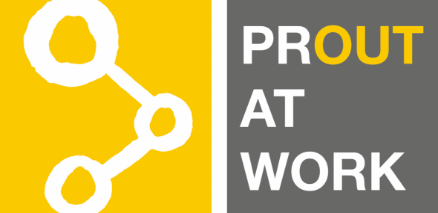Big Impact Initiative Award:
METRO Pride
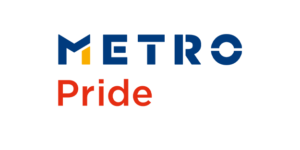
At first glance, the topic has nothing to do with the workplace, but if you look closely, you will find a labor law perspective. It’s about reducing discrimination against gays, or more specifically, against men who have sex with men. Gay, bisexual men and trans* people currently have to comply with a 12-month deferral period, if they want to donate blood. Specifically, this means that they must suspend their love lives for a year in order to donate much-needed blood. In many other countries, this deferral period is only three or four months. This discrimination led the network’s company to stop blood donations on its own campus in protest of the current deferral period. In addition, the network has campaigned for a change to be made to the underlying legal regulation. On the initiative of the network to be awarded, PROUT AT WORK, together with 12 other companies from German industry, then published the position paper on blood donations on April 17, 2020 and sent it to political and medical decision-makers.
With this initiative, the network to be honored has both challenged internal standards and made a significant impact on society as a whole.
Rising Star Award:
Be You @ Beiersdorf
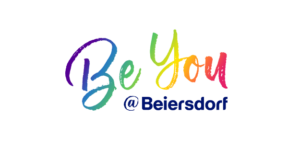
The network was able to attract 20 active networkers and 200 allies with its launch campaign. Internally, Be You @ Beiersdorf works intensively on diversity workshops and is thus committed to an open culture. One of the network’s greatest achievements this year was certainly the Pride Season campaign: under the hashtag PRIDEINSIDE, the Rainbow Bulli was used locally in Hamburg to raise awareness and educate people on the streets. Nationally, the prominently marketed Rainbow cans of the Group’s best-known brand caused a stir in stores. In addition, the campaign, which grew out of the company’s internal LGBT*IQ network, was linked to an education project. Information flyers were displayed next to each display in the stores, explaining what the company is doing as part of its corporate social responsibility: financial support was provided for Olivia Jones’ ‘Olivia macht Schule’ project, which raises awareness of LGBT*IQ issues in schools.
Global Leader Award:
GABLE @ Procter & Gamble
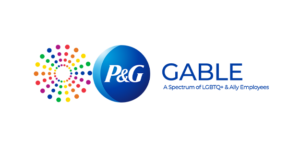
Founded in the 1990s, it has since been campaigning for LGBT*IQ equal opportunities internally, externally and, above all, internationally. In impressive short reports, for example, it tells the story of the beginnings and progress of LGBT*IQ commitment in the company and also the history of the network itself, together with the BBC. The network is active in 43 countries with 5,000 networkers, shaping LGBT*IQ diversity across the company. Internally, there are educational trainings on LGBT*IQ, the company celebrates its own diversity & inclusion culture and also informs the general workforce about the LGBT*IQ network in order to recruit further committed people. In employee surveys, the company wants to find out directly from LGBT*IQ employees how they feel about their own sense of acceptance and how open the company is about sexual orientation and identity. The company is also visible externally on diversity issues. From commercials on gender biases to LGBT*IQ oriented marketing campaigns, the company cooperates with various LGBT*IQ NGOs to achieve equal opportunities for LGBT*IQ people around the globe.
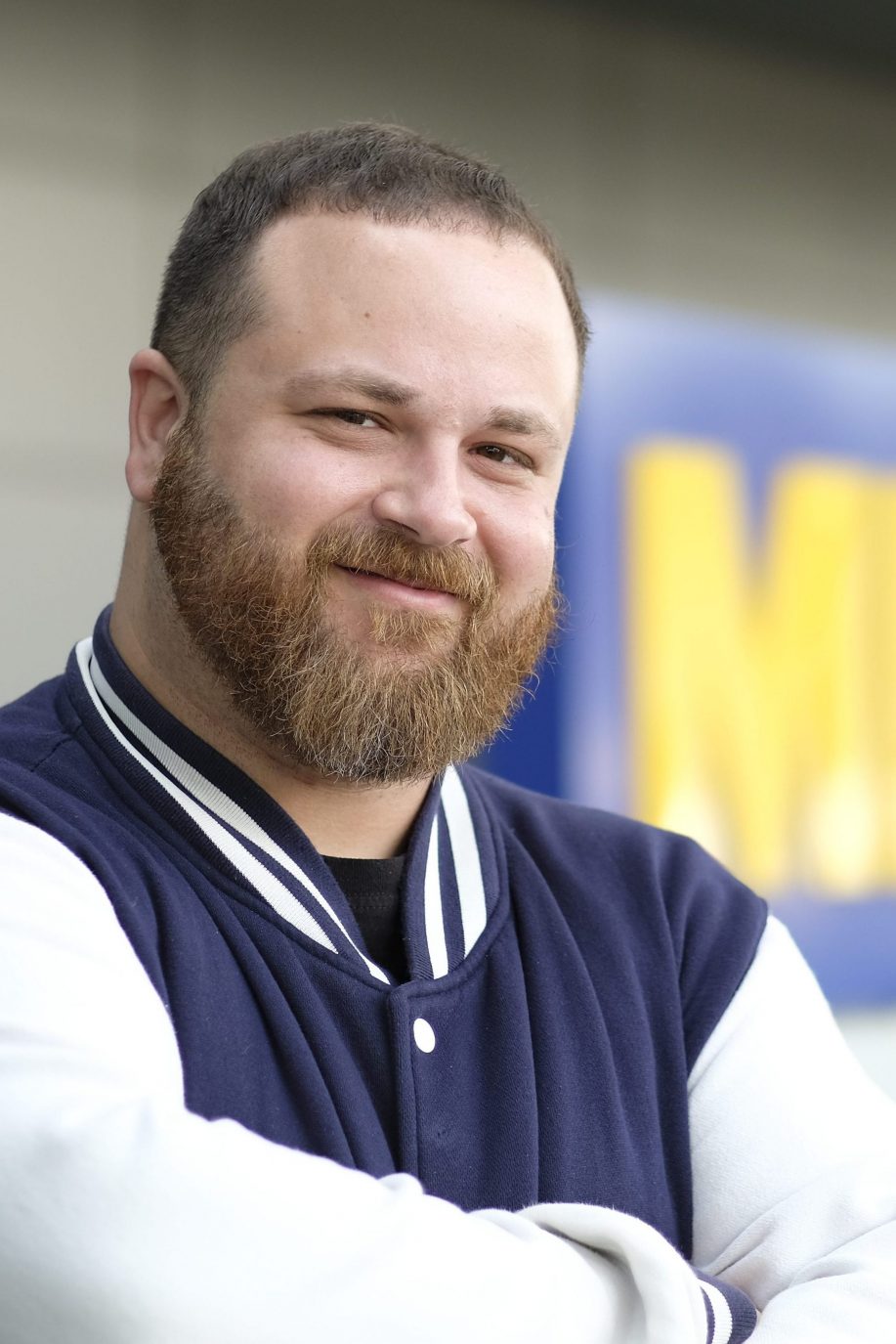
First place, GERMANY’S TOP 50 LGBT+ Voices 2020
“I want to maintain a daily dialogue about LGBT+ because unconscious bias is something that affects everyone. The more visibility I can give the subject, the more we will become aware of our unconscious thoughts.”
After studying logistics management, Nikita Baranov began his career in the commerce sector and was responsible for external IT partners and innovations at METRO AG from 2015 to 2020. He has been Executive Assistant to the CHRO since July 2020. In addition, as a spokesperson for the LGBT+ employee network METRO Pride and a core member of the women’s network WiT, Nikita promotes cultural change in order to make workplaces even more open.
Why are you involved in this topic at work?
Nikita Baranov: I want anyone who works for us or with us not to have to ask themselves the energy-sapping questions “Should I come out?” and “How much should I reveal about myself?” – I want them to be able to be who they are, with their entire identity. To come to work without having to fear being harassed, bullied or discriminated against just because of who they are. Not only to be diverse and integrated, but also to have a feeling of belonging.
What responses do you get to this?
Nikita Baranov: I get positive responses to my involvement, but I also notice that the topic of LGBT+ is not always considered an integral part of Diversity & Inclusion by all employees. That’s why we need to continually raise people’s awareness because only a diverse workforce can meet our goal of producing creative and innovative solutions for our equally diverse customers.
What can we all achieve by getting involved in LGBT*IQ networks?
Nikita Baranov: I’m convinced that only by joining forces will we manage to eliminate discrimination at work in order to promote equal rights. Networks help us increase visibility, and company-wide projects have a bigger reach and significance. One thing is certain: we’re all fighting for a common cause, and alliances can only be beneficial.
Since July, you have been Executive Assistant to the Chief Human Resources Officer at METRO AG – will this enable you to make LGBT*IQ topics even more visible?
Nikita Baranov: Above all, I firmly believe that, regardless of role or position, everyone has a voice and a platform that they should use to promote LGBT+ topics. As LGBT+ diversity is a key part of our corporate culture, I’m happy to be able to make the topic even more visible.
You’re often seen with a rainbow – what does it mean to you to be out and visible?
Nikita Baranov: I want to maintain a daily dialogue about LGBT+ because unconscious bias is something that affects everyone. The more visibility I can give the subject, the more we will become aware of our unconscious thoughts. Being out at work and not having to hide my identity is a prerequisite for showing myself as a whole person and performing at my best.
The interview was conducted as part of GERMANY’S TOP 100 OUT EXECUTIVES. This list is a joint project with the UHLALA Group and is now available online.
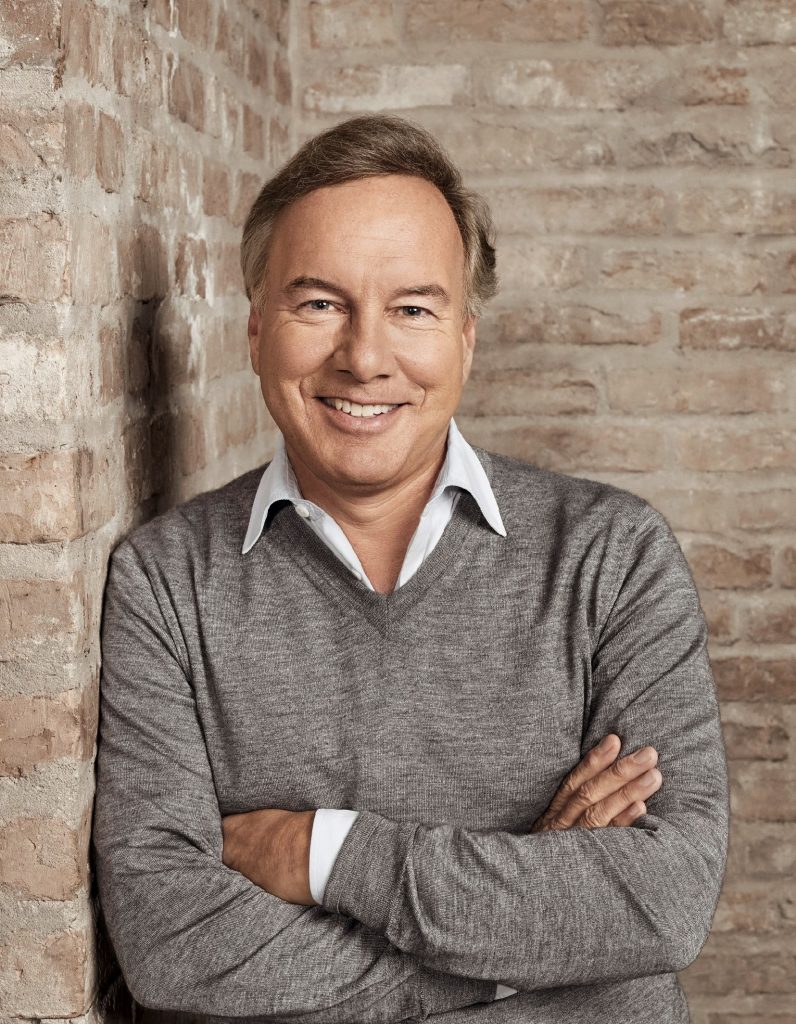
First place, GERMANY’S TOP 100 OUT EXECUTIVES 2020
“Managers shape a company’s culture. The more openly we practice diversity, the more open our dealings with each other become.”
Nico Hofmann, who was born in Heidelberg in 1959, is one of Germany’s leading film and television producers and CEO of UFA. He has been responsible for some of the most successful films and series of the past two decades. Together with Bernd Eichinger, Nico Hofmann launched the young talent award FIRST STEPS in 1999. He has won numerous national and international awards for his work as a director and producer.
Nico Hofmann, many congratulations on being ranked no. 1 in GERMANY’S TOP 100 OUT EXECUTIVES list. You were already on the list last year – what responses did you receive as a result of that?
Nico Hofmann: Thanks! I’m delighted, although I see the list of Out Executives as more of a platform for dialogue than just a ranking. After I was ranked 12th last year, I was able to create lots of contacts with other colleagues from the list. That’s very valuable. It’s important to make diversity visible and the Out Executives list is a very interesting way of doing that.
Being out at work – what does that mean in a leadership position?
Nico Hofmann: Managers shape a company’s culture, so the significance shouldn’t be underestimated. However, the need for diversity and the energy come primarily also from the employees themselves. The younger generation in particular are making very strong calls for this – something we have a keen sense of at UFA. The company has changed in the past five years, becoming much more female and much younger. And the more openly we practice diversity, the more open our dealings with each other become. Today we discuss things differently and cast roles differently as well. UFA’s parent group Bertelsmann has the be.queer network, which we became part of by creating be.queer@UFA. Here, too, a lot of the initiative stemmed from our employees.
Nevertheless, the German film industry in particular could still do a lot more about diversity. How do you see your own role here?
Nico Hofmann: I very clearly have a political agenda. I appear in the media and talk about the subject. Germany is about five years behind the USA in this area, but things are moving. Together with the media industry magazine DWDL.de, we had planned to hold a diversity summit for the film industry in Cologne this year. Unfortunately, it had to be cancelled due to the coronavirus pandemic. But the summit will take place next year because the demand for it was very strong. The major channels had confirmed their attendance, the tickets were quickly sold out and big names were set to appear on the panels – that tells me how topical the subject is for the film industry.
LGBT*IQ people still barely feature in German film and television productions, and when they do, they often have very clichéd roles. What is being done to change this?
Nico Hofmann: Diversity has long been visible in our daily dramas such as “GZSZ” (“Good Times, Bad Times”), and we have currently begun filming our queer series “All You Need” for the public channel ARD – this wouldn’t have happened a few years ago. If we show LGBT*IQ people as a perfectly normal part of films and series without turning them into victims or resorting to clichés, my hope is that, in society as a whole, they can develop their own self-identity because this has become an entirely natural thing to do.
What’s more, today we have a different generation of creatives. I teach at the Film Academy in Ludwigsburg and some of my best students there are from minority ethnic groups and approach topics in a completely different way. I’ve also had the opportunity to support the development of several transgender students at the Film Academy and I’m seeing a generation come through that has a very strong need for diversity.
The interview was conducted as part of GERMANY’S TOP 100 OUT EXECUTIVES. This list is a joint project with the UHLALA Group and is now available online.
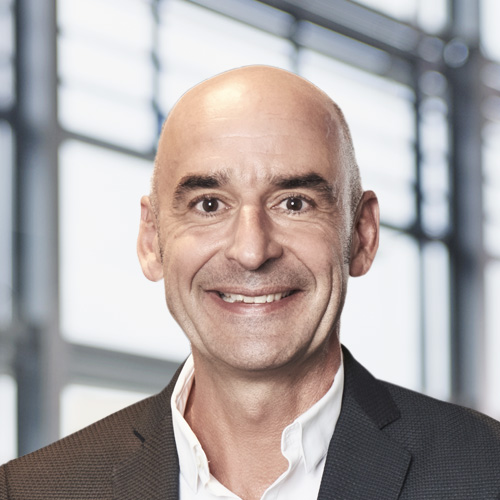
PROUT EMPLOYER Campana & Schott
“Openness and tolerance are here to stay.”
Dr. Christophe Campana is the founder and managing director of Campana & Schott. He has over 25 years of experience in (top) management consulting and is a member of various expert and advisory boards. His main areas of focus include “strategic project and portfolio management” as well as “new forms of collaboration” with a special focus on social collaboration. Dr. Christophe Campana is the author of over 50 publications on the subject of project and portfolio management.
In simple words, Campana & Schott is providing advice to their customers on strategies to keep their finger on the pulse. What role does diversity play here?
Dr. Christophe Campana: Events such as climate change, radicalization, populism, etc. have led to the point that more and more people are concerned with meanings and values. Most people have recognized that “healthy” progress and prosperity cannot be done without moral values and sustainability. Diversity is one of these values and therefore an essential part of this overarching development. Excluding people due to their sexual orientation promotes hatred and prevents a sustainable better future for everyone. There is still a lot to be done here.
Campana & Schott received three awards as a “Great Place to Work”. The list of your commitments towards the diversity of your employees is long and you are building on long-term cooperation instead of “hire and fire”. Has the PROUT EMPLOYER cooperation been the last piece of the puzzle for an open and inclusive work environment?
Dr. Christophe Campana: There will probably never be that one last piece of the puzzle. For us, the cooperation with PROUT EMPLOYER is an important part of our commitment, which we are constantly developing further. I keep learning new things, e.g. only recently the Federal President Steinmeier made a very clear point in the context of the anti-racism riots where he said: “It is not enough to not be a racist. We have to be anti-racists.” This view also applies to me with regard to diversity and our corporate culture. I am convinced that in the future there will always be topics that managers should deal with in the interests of their company: openness and tolerance are here to stay.
“I understood that as an entrepreneur you have to take a visible and public position on this in order to reach out to the community and signal: Live your sexuality as you want: openly or not – both are fine.”
What advice would you give to companies that are just starting their commitment to LGBT*IQ diversity?
Dr. Christophe Campana: At Campana & Schott there have always been employees who have lived out their homosexuality openly. Therefore, homophobia had no place in our company. For a long time, I believed that this was enough. Only later, I understood that as an entrepreneur you have to take a visible and public position on this in order to reach out to the community and signal: Live your sexuality as you want: openly or not – both are fine. But if you want to live it openly, you will not suffer any disadvantage in our company. It’s just a small step, but it does a lot – and only good.
From our experience we know that LGBT*IQ diversity has the greatest impact in a company when executives, diversity management and the company’s corporate networks regularly come together. Is that also your recipe for success?
Dr. Christophe Campana: Yes, I myself regularly meet with our LGBTQ+ network and have learned a lot from these meetings, e.g. the so-called “Monday lie”, when colleagues chat with each other during the coffee break about the last weekend and some prefer to describe their life partner as “a friend”.
I could immediately emphasize the stress associated with this white lie when my employees told me that they had felt like this for very long periods of time, sometimes even years. That is why the close exchange is so crucial: You start to better understand the problems of the community and can actually start changing things more targeted.
The last question: There are turbulent times coming for employees. Considering your commitment to diversity, how would you react to the statement that starting from now, there are more important topics than LGBT*IQ diversity?
Dr. Christophe Campana: There is a difference between the urgency and the importance. The unexpected severity with which the corona pandemic has affected all areas of life resulted in existential challenges for many companies which we will have to deal with. Just because you douse a fire in an apartment doesn’t mean that your general life in the apartment becomes unimportant. This crisis overshadows many issues, which, however, do not become irrelevant – on the contrary: I am convinced that companies with an open and appreciative culture will get through the crisis better. Diversity is an essential part of corporate identity and contributes to the performance and resilience of an organization.
Dear Dr. Campana, thank you for talking to us!
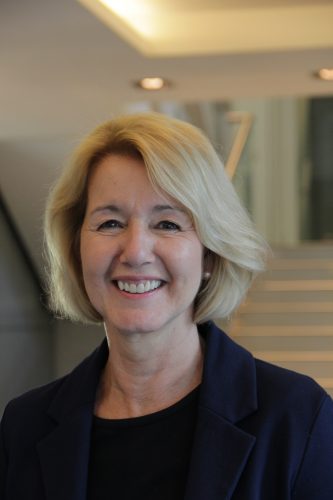
PROUT EMPLOYER REWE Group
“We are best able to solve a task when we view it from multiple perspectives.”
Dr. Petra Meyer-Ochel (62), born on the Lower Rhine, graduated with a PhD in business administration from Cologne University. She then worked in personnel and management development for various retail companies, followed by 11 years as a freelance consultant. Since 2015 at REWE Group, responsible for the CoE Personnel Development in Retail Germany as well as many topics of the sustainability pillar Employees.
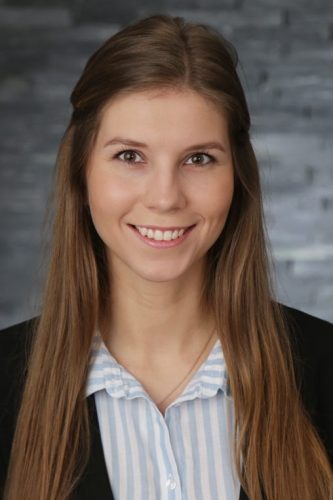
“It’s important to us to accommodate the interests, wishes and ideas of all our employees […].”
Kaja Gut (27), born in Frankfurt am Main. Studied in Darmstadt, graduating in 2019 with a master’s degree in psychology with specialisations in business und personnel psychology as well as occupational and engineering psychology. Has been working for the Employer Branding team at REWE Group Headquarters in Cologne since 2019, where she is responsible for REWE Group certifications, among other things.
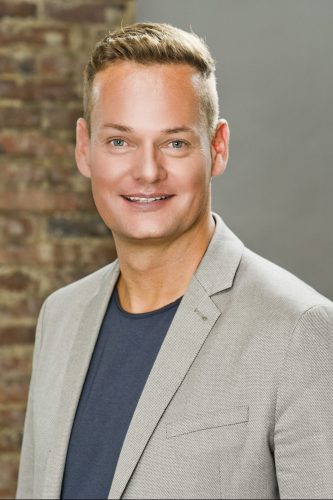
“Without all those supporters all the way up to the executive level, a network like di.to.”
Frank Bartels (46), born in Lower Saxony, trained as a hotel manager in Hamburg before moving to Cologne in 1998 where he has been working for REWE Group for over 21 years. Responsible for event & travel management. In 2013, he initiated the LGBT network di.to. (different together) within REWE Group and is one of its two spokespeople. The network comprises about 300 employees nationally and exists in both Germany and Austria.
Top Employer in Germany with an extraordinary focus on employees for six years in a row, certified as a top training provider with the BEST PLACE TO LEARN label and recognised as an employer with a focus on balancing work and family. Was the REWE Group’s step to become a PROUT EMPLOYER a logical consequence? What motivated REWE to do so?
Katja Gut: It’s important to us to accommodate the interests, wishes and ideas of all our employees, regardless of gender, nationality, ethnic or social background, religion/beliefs, disability, age or sexual orientation. For us, focusing on our employees is essential, so we’re always looking to add further programs to our portfolio that could be helpful to our employees as well as potential applicants. As a PROUT EMPLOYER, we now have taken another important step, including with regards to supporting and positioning our LGBT network di.to (di.fferent to.gether).
What are your goals for the PROUT EMPLOYER cooperation?
Katja Gut: Through our network di.to, we are already actively promoting more tolerance and acceptance in the workplace, regardless of sexual orientation. We expect the PROUT EMPLOYER cooperation to add new input in this area, help extend our network and allow us to work on innovative ideas together. We are looking forward to learning new things, exchanging views with employees from other industries and sharing experiences. It’s great to meet like-minded people who support LGBT projects with the same passion we do.
“It’s important to us to be able to work as transparently as possible and keep drawing attention to our campaigns and events wherever we can: for example, involving all our colleagues at REWE Group in our participation at the 2019 Cologne CSD.”
Petra, you believe that the teams of the future will be mixed and diverse and you align your strategies accordingly. How is this idea being lived at REWE Group? And how can LGBT*IQ talents benefit from this philosophy?
Dr. Petra Meyer-Ochel: At REWE Group, we have mixed teams in our supermarkets as well as in our central locations – professionally, individually and with regards to the above-mentioned diversity dimensions. We are best able to solve a task when we view it from multiple perspectives. And you get these multiple perspectives when you make sure your teams are diversified. To start with, this often means more effort because all the different opinions need to be heard and exchanged. Communication is more complex as well, for example when a colleague from Retail sees things differently from someone who works in administration. But it always pays off in the end. Mixed teams frequently debate and discuss ideas that wouldn’t even have come up in a more homogeneous team. I am firmly convinced that diverse teams are more creative and make better decisions in the long term.
LGBT*IQ talents can benefit just like anyone else: openness for other people’s ideas, mutual respect and results that have been achieved together strengthen both the individual and the entire team.
Frank, in REWE’s advocacy for equal opportunities for LGBT*IQ, network and executive level work closely together, with numerous supporters in between. Is that the secret recipe for LGBT*IQ diversity within the company?
Frank Bartels: Yes, absolutely. Without all those supporters all the way up to the executive level, a network like di.to. wouldn’t have any clout whatsoever. Shortly after the network was founded in 2013, our current CEO and then-director Lionel Souque became our patron. That gave our network tremendous momentum and opened every door within the REWE Group. However, it should also be noted that acceptance within our company was – and still is – huge from the beginning and we we’ve always been able to approach various contact persons within REWE Group with our concerns at any time. It’s important to us to be able to work as transparently as possible and keep drawing attention to our campaigns and events wherever we can: for example, involving all our colleagues at REWE Group in our participation at the 2019 Cologne CSD. We don’t want to be on the sidelines, but we don’t want to be perceived as an elitist group either. So the 2019 CSD motto “Many.Together.Strong.” unwittingly became a maxim for working together at REWE Group.
From your perspectives, what advice would you give companies who are at the very beginning of their work for LGBT*IQ diversity?
Frank Bartels: As discussed, backing from an executive or from other straight allies is essential as far as LGBT networks are concerned. It gives you support, strength and self-confidence, in particular while the network is still in its infancy. Outwardly, LGBT/diversity should be an issue close to your heart, i.e. an issue that you’re comfortable promoting throughout the entire year rather than pinkwashing during Pride season. The fact that we display rainbow stickers at the entrances to our REWE and PENNY supermarkets, our toom hardware stores and our DER travel agencies positions us very credibly in this regard.
Thank you very much for the Interview!
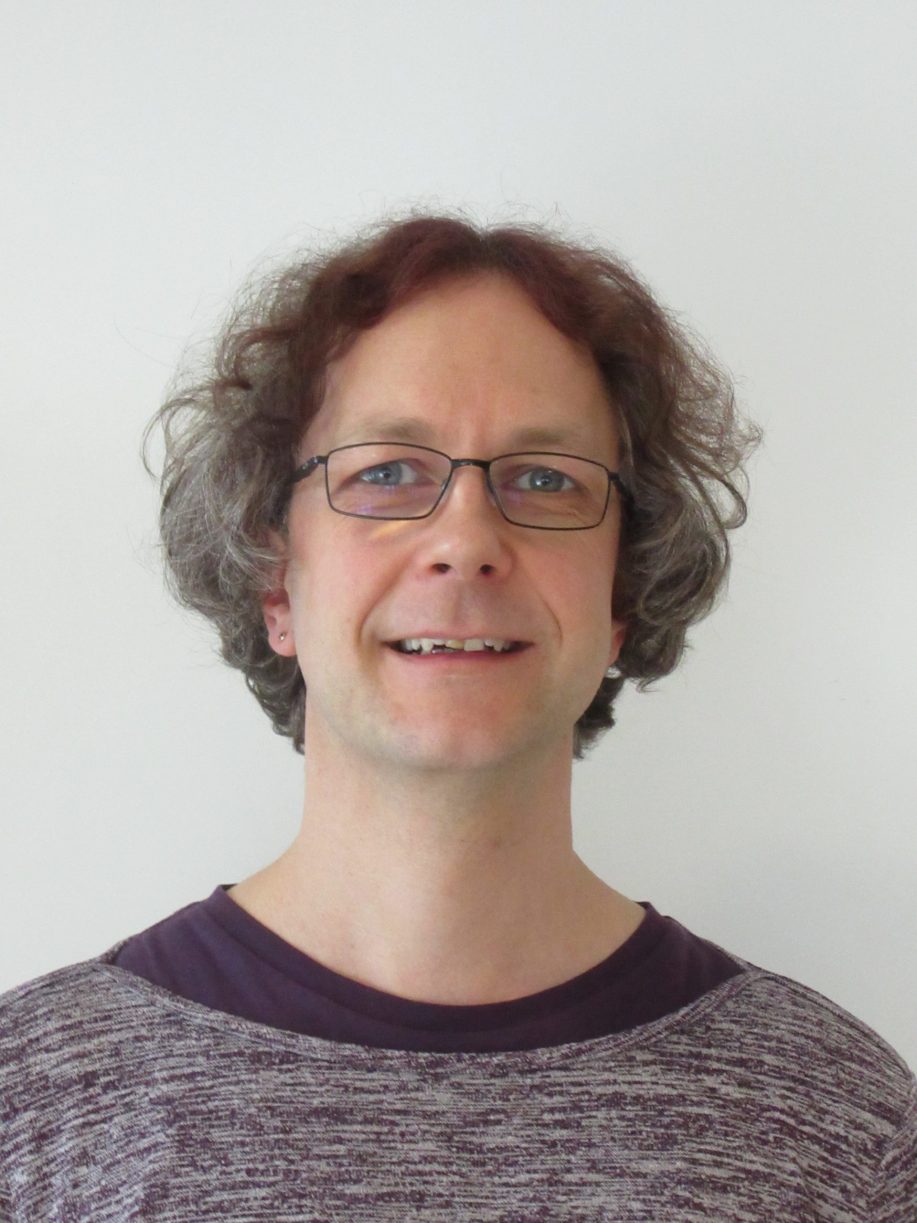
A talk with… Nils_Séline “Nica” Schächtele
“Let’s be as courageous as possible. Intersexuality is still a big taboo topic.”
Nils_Séline “Nica” Schächtele was born in Freiburg im Breisgau and studied electrical engineering and information technology at Karlsruhe Institute of Technology. Both before and while studying this subject, Nica was interested in professional sound and acoustic engineering. In 2002, the next stop on Nica’s journey was Straubing, where Nica joined EVI Audio GmbH (a subsidiary of Bosch’s Building Technologies business unit since 2006) as a systems test engineer.
You refer to yourself as “divers” (non-binary). What experiences have you had at Bosch with this identity?
Nils_Séline “Nica” Schächtele: DIVERSITY has been an important topic at Bosch for some years now. I have always liked the term “divers” very much because I have intersex as well as transgender-androgynous and bigender characteristics, and “divers” covers all of them. The change in the law creating the third gender option in Germany has really pushed things forward simultaneously for Bosch and for me. This year, we started to take many diverse steps together and to have lively discussions – a win-win situation for all of us. Sometimes, I jokingly refer to myself as “Bosch’s token non-binary person”. The feedback from my colleagues at the office was cautiously positive, and I got a lot of respect for being open about my gender. There was also a bit of confusion, in particular due to my two additional first names Séline and Nica. If I brought up this subject myself, the question I heard most frequently was: “Can I still call you Nils?” – which I’m OK with.
What does it mean to you to be an intersex person in our society?
Nils_Séline “Nica” Schächtele: It means belonging to a tabooed minority that is largely invisible. Sometimes I feel like we’re aliens from a Science Fiction movie: “So people like that actually exist?” “Yes, they do!!” Noticing that someone has both typically female and typically male characteristics, or finding out more details about this, or even realising that someone doesn’t fit into any traditional category, makes many people uneasy. It doesn’t match the binary view of the world that is instilled in us. It takes a lot of patience and stamina to overcome this hurdle.
“However, the biggest challenge is, and continues to be, plucking up the courage to speak openly to others.”
When did you come out in your workplace? And what challenges did this pose at your company and with your colleagues?
Nils_Séline “Nica” Schächtele: I began to come out at Bosch during a telephone call with Olaf Schreiber – the spokesperson for the company’s LGBTIQ network RBg – and then in a telephone call about the “third gender option” with Anja Hormann from the central Bosch Diversity Team. After that, I gradually informed my direct colleagues at the office, my carpool group, my supervisor and the local HR department. A wonderful video made by colleagues for colleagues on IDAHOBIT inspired me to have my first name changed to Nils_Séline in the internal company address book. It is written with the so-called “Gender_Gap” to visualise the gender continuum between male and female. I dedicated my first blog entry in the internal network to this subject and sometimes I was moved to tears by the approval I received from all over the world. On Diversity Day, our office organised a Diversity Business Lunch which I attended and where I was able to talk about non-binary gender aspects with those present. Generally, I was pleasantly surprised at how much good will and appreciation were shown to me at all levels. However, the biggest challenge is, and continues to be, plucking up the courage to speak openly to others. Not to mention the IT side, where the only options you have in many areas are male and female.
What advice would you give to intersex people planning to come out?
Nils_Séline “Nica” Schächtele: Take it slowly – small steps are best, so give yourself time. Coming out as an intersex person requires a great deal of care and courage. Things can quickly take a wrong turn. I recommend beginning with people who are not quite so close to you. After a bit of practice, you’ll find it easier to talk to your family and close friends. And get in touch with LGBTIQ allies – they’re open-minded and make very good listeners. Talking to allies will make you feel better and boost your self-confidence.
“I’d like this to be matched by a more relaxed approach – as if you’re talking about the weather or what you’re going to cook for dinner.”
What are your hopes with regard to the visibility of intersex persons in particular and the LGBTIQ Community in general at your company?
Nils_Séline “Nica” Schächtele: Let’s be as courageous as possible. Intersexuality is still a big taboo topic. In many places, we as a society have yet to take a clear stand against hastily begun hormonal treatment or surgery which is not medically necessary. The few who are open about their identity are inundated with letters and requests from all sides. But there are other important topics, too. That’s why I’d like to see many people – in particular many allies – spread the message that the human body doesn’t just develop into a man or a woman and that gender actually covers a broad spectrum. I’d like this to be matched by a more relaxed approach – as if you’re talking about the weather or what you’re going to cook for dinner. I experienced this on Stuttgart’s commuter trains recently and it worked really well. As regards our LGBTIQ Community at Bosch, I hope that many people will join us in the years to come, the proportion of allies will grow steadily, and gender diversity will gain an even higher profile. This applies to intersex, transgender and queer identities topics of any kind.
Big Impact Initiative Award:
be.queer LGBTIQ and allies at Bertelsmann
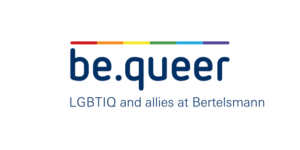
This year, the award in the Big Impact Initiative category went to Bertelsmann’s be.queer network. To mark this year’s Coming Out Day, the company published creative contributions designed to make its own employees more aware of the topic of coming out in the workplace. For example, rather than focusing just on their own group, the network used the project as an opportunity to get several generations and departments of the company involved. To this end, they initiated the first cross‑division trainee project and thus prompted several companies to consider a change in perspective. “We have a social responsibility and are a powerful instrument for the population at large. The video allows us to draw attention to the topic in society, too, using one of our trade marks – the moving image.
Rising Star Award:
MORE* Queer@OttoGroup
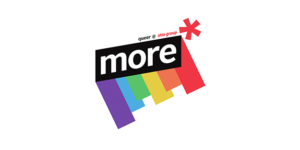
The Otto Group’s MORE* network won the Rising Star Award 2019. Founded as recently as late July 2019, the network has adopted a clear role within the company with the familiar objective of bringing employees together – whether they are queer, allies or simply curious. They actively take a stand in favour of LGBTIQ diversity and against discrimination, and lend a voice to those who have not (yet) found theirs. They have already succeeded in getting the rainbow flag permanently positioned between the Group’s flags and have also ensured that, in future, employees will make their way into work via a specially created Pride Walk. Over 200 employees are now part of the network. And the clear message from all involved is: “We are convinced that in public debates corporate groups have a growing social responsibility and must actively take a stand in favour of diversity.”
Global Leader Network Award:
dbPride – Deutsche Bank’s LGBTQI network
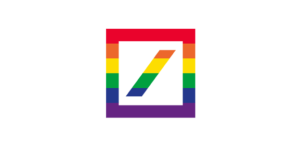
Deutsche Bank’s dbPride network received the Global Leader Network Award 2019. Thanks to impressive activities in various countries, they demonstrated how they promote equal opportunities for LGBTIQ people. They use targeted campaigns not only to advocate actual change for the better within their own corporate culture, but also to play an active part in global efforts to change the political and societal situation of LGBTIQ people. They were actively involved in the drafting of the LGBTI Standards of Conduct for Business and are among the most committed members of various initiatives, declarations and statements. Determined and effective, this network ensures that their company translates its corporate philosophy into deeds.
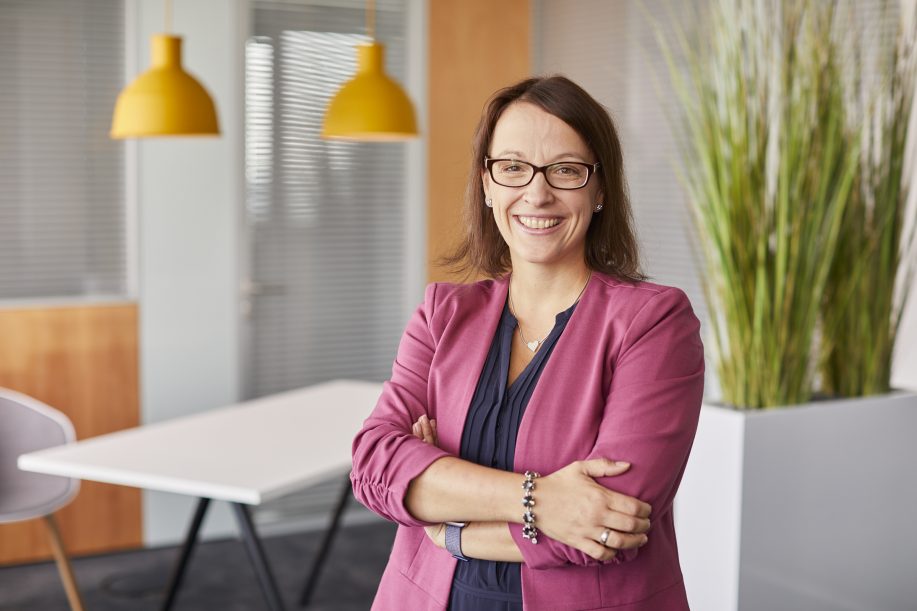
PROUT EMPLOYER METRO
“My goal is that in ten years we no longer have to talk about diversity and inclusion because both of these things have simply become part of life – in all areas of society.”
Laura Halfas worked for various trading and consulting companies in the areas of purchasing, distribution and IT before she joined METRO in 2008. She started in the Supply Chain Management IT area and then moved to Customer Marketing IT. Seven years later, Laura Halfas, who has a bachelor’s degree in trade and commerce, became the team leader of eCommerce, Marketing Operations & Traceability. At the end of 2017, she ultimately took over the position of Head of Corporate Responsibility. She focuses on diversity and inclusion as well as corporate citizenship.
Ms Halfas, METRO AG is clearly a very active PROUT EMPLOYER. In what specific ways does METRO champion more equal opportunities for LGBT*IQ people?
Laura Halfas: METRO was one of the first wholesalers to sign the UN Free and Equal Standards of Conduct for Business, which ensure that all employees are “free and equal”. We also have METRO Pride, a very strong internal network. This year, the Diversity & Inclusion Days took place for the first time at our campus in Dusseldorf to spark our employees’ interest in the topic of diversity. And METRO was again represented at Sticks & Stones in 2019, the largest LGBT+ careers fair in Europe.
Which initiatives are you personally particularly proud of?
Laura Halfas: We at METRO initiated a position paper on the issue of blood donation because the guidelines are discriminatory. For example, homosexual men are generally assumed to engage in risky behaviour irrespective of their actual sexual behaviour and their life situation. It would be great if, together with PROUT AT WORK, we could achieve a position paper that was adopted by German businesses. That’s why I would again like to take the opportunity to invite businesses to participate in this initiative.
“Working for equal rights is what drives me. At first, I only focused on gender equality, but then I realised that there are many areas in which there is no equality.”
As Head of Corporate Responsibility, it is your duty to ensure that METRO AG fulfils its corporate responsibility for the environment and society. In your view, what responsibility do businesses have when it comes to equal opportunities for LGBTIQ people?
Laura Halfas: We are a people business and we work with people throughout our entire value chain. As a global company with more than 150,000 employees in 36 countries, it’s our duty to ensure that all people are treated equally and not discriminated against – be they METRO employees, service partners, suppliers or customers.
In what specific areas are you hoping for support from PROUT AT WORK?
Laura Halfas: I and a lot of my colleagues appreciate the networking and dialogue with PROUT AT WORK. The foundation has considerable experience and know-how. For example, it constantly provides us with new impetus to drive forward cultural change within METRO and make our jobs even more open and less susceptible to discrimination. What’s more, our activities are becoming visible outside the company. And as I said, our motto when it comes to the position paper on blood donation is: together we can do it!
You immediately agreed to an interview with us – thank you again! To what extent are equal opportunities for LGBTIQ people an issue that is close to your heart?
Laura Halfas: Working for equal rights is what drives me. At first, I only focused on gender equality, but then I realised that there are many areas in which there is no equality. My goal is that in ten years we no longer have to talk about diversity and inclusion because both of these things have simply become part of life – in all areas of society. However, there are still many areas in which LGBT+ issues need to be addressed. People are still being discriminated against. I want to change this. Everyone should have the opportunity to be who they are.
Ms Halfas, many thanks for talking to us!
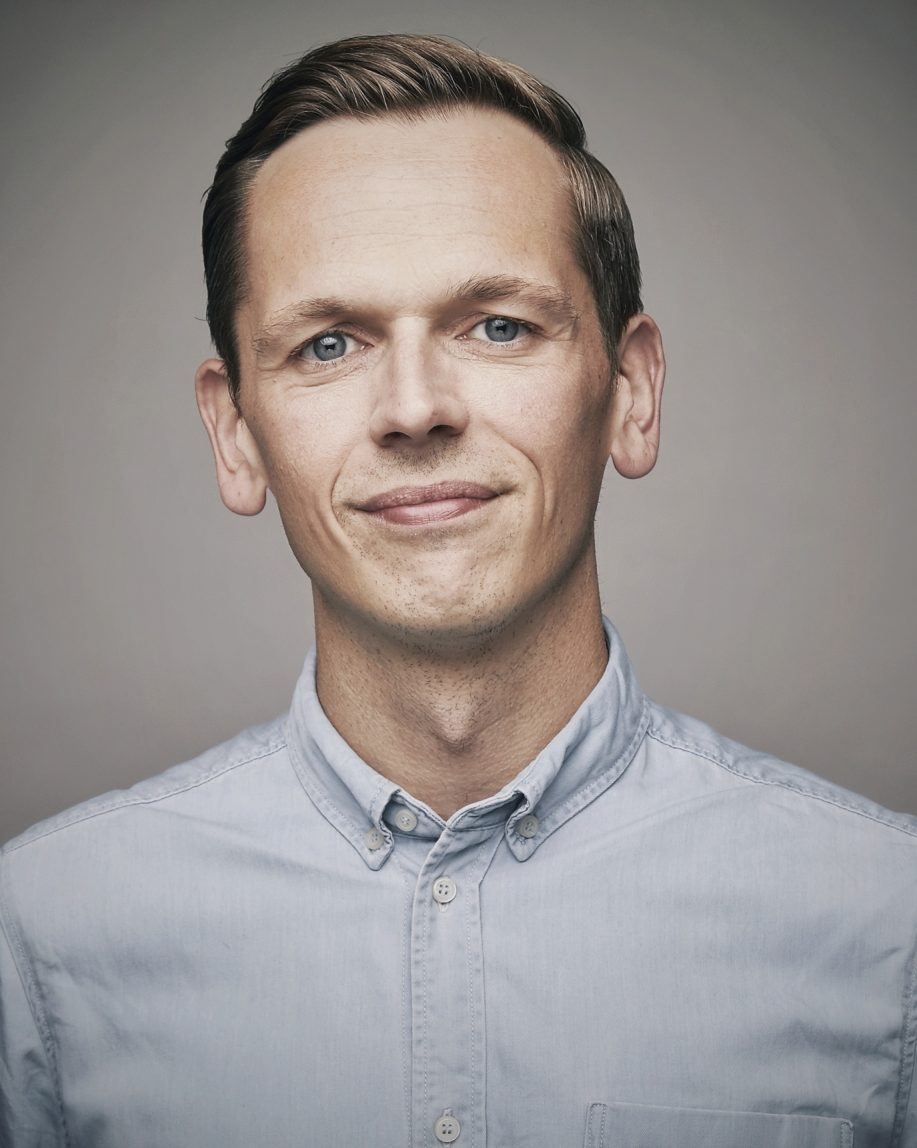
PROUT EMPLOYER OTTO
“That’s why for me, MORE* is a very clear signal to the outside world – a signal that shows that in the Otto Group we will […] continue to be a liberal-minded, tolerant corporate group of many colours.”
Ingo Bertram is OTTO’s press spokesman and co-founder of MORE*, the Otto Group’s LGBTIQ network. Previously, Mr Bertram, who was born in Bremen, was head of Corporate PR & Content in the corporate communication department of the logistics service provider Hermes and worked as a PR consultant for international brands and groups.
You’re a very young network – only founded in 2019. Tell us how your initial idea led to the network being formed and how the first activities came about.
Ingo Bertram: The Otto Group has long been a supporter of diversity – explicitly including LGBTIQ. A good example of this is our cooperation with Hamburg Pride, which started in 2017. Nevertheless, the Group had no official structure that specifically allowed LGBTIQ people to join together and that promoted queer topics and coordinated activities. Nor was there a central voice representing the interests of our queer colleagues. This is precisely why in May 2019 we established MORE*, a queer network in the Otto Group. At the end of July, to coincide with Hamburg Pride Week, we officially launched the network – and the first thing we did was turn the OTTO campus into a sea of rainbows, including a rainbow zebra crossing and a huge rainbow cake, through a range of activities. Incidentally, the zebra crossing is now a permanent feature on our campus, as is the rainbow flag in front of our main entrance. The cake, however, was gone within two hours!
“Whether MORE* will be a lasting success in the Otto Group depends primarily on how deeply we can anchor our vision in the group and in the mindset of our staff.”
Which challenges did you face? Where did you get support from?
Ingo Bertram: Right from the time we established the network, we received a delightful amount of encouragement and support, not only from direct colleagues, but explicitly also from the highest management levels. I sometimes had the impression that many people were merely waiting for a queer network to finally be launched. Ultimately, our biggest challenge was therefore not only to officially establish the network within a few weeks, but also to organise a launch that met our own high standards – and to do all this without neglecting our main jobs. I was blown away by the fact that we had already got more than 150 MORE* supporters within 48 hours of the official launch on 29 July.
With Gesa Heinrichs as Executive Sponsor, you have an enormously committed person on board. To what extent does this help you in your work?
Ingo Bertram: Whether MORE* will be a lasting success in the Otto Group depends primarily on how deeply we can anchor our vision in the group and in the mindset of our staff. A prerequisite for this is that we can motivate as many colleagues as possible to help shape the work of our network proactively and drive forward ideas. Of course, it’s helpful for MORE* to also have committed members and supporters at higher management levels, such as Gesa Heinrichs or our patron Katy Roewer, the member of OTTO’s management board with responsibility for Service & HR. This gives us better access to top management and can make coordination easier. What is ultimately decisive, though, is that our ideas, visions and wishes take hold within the company, irrespective of any hierarchies. And for this goal we need every single person.
Why is supporting LGBT*IQ people a matter that is close to your heart?
Ingo Bertram: I’d like to answer this question both from a personal view and from the perspective of society as a whole. Speaking personally, the answer is obvious because – just like many other initiators and supporters of MORE* – I am queer myself and naturally I want to work in a company that treats its employees equally without reservation, regardless of gender, religion, skin colour or sexual identity. However, this always works best when there are people in a company who are committed to diversity and set a good example. This is precisely what we want to do with MORE*.
On the other hand, what’s at least as important to me is the appeal such a commitment can have beyond one’s own job. In Germany and in many other countries, we are experiencing a partial rollback of society. Right-wing populist ideas are gaining influence, mostly at the expense of minorities, and these include not only refugees, Muslims or Jews, but also queer people. I can’t and won’t stand by and watch this happen, either in my personal life or at work, and this is how many others here feel, too. I am convinced that in this discourse, companies have a growing social responsibility and must actively take a stand in favour of diversity. That’s why for me, MORE* is a very clear signal to the outside world – a signal that shows that in the Otto Group we will not surrender to this rollback and will continue to be a liberal-minded, tolerant corporate group of many colours.
What are the next steps, and what are your wishes and goals for the network?
Ingo Bertram: Globally, more than 50,000 people work for the Otto Group. The biggest challenge and thus the most important goal for us will be to reach as many of these people as possible. This sounds trivial at first, but it isn’t. In the coming months, we will therefore begin by redoubling our efforts to build up an internal network between our more than 120 group companies, both digitally and using regular dialogue formats. At the same time, we want to promote awareness of queer topics internally in various areas, whether it’s in marketing and purchasing, in our online shop teams or in the recruiting process. I think we’re already on the right track.
Many thanks for talking to us, Ingo!
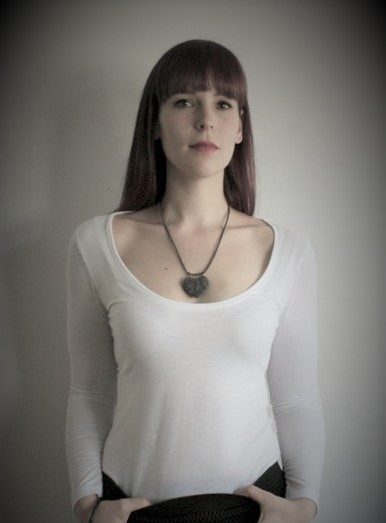
A talk with… Katharina Reimann
“It feels like I come out on a recurring basis, because many people think, „Oh, she’s just going through a lesbian or heterosexual or whatever phase“
Katharina Reimann is a self-employed goldsmith. After stints in Hamburg, Hanau and Trier she now lives and works in Vienna. Not long ago she decided to go it alone and, together with a jewellery designer friend, opened her own workshop.
You identify as a bisexual woman – what does that mean to you?
Katharina Reimann: Perhaps I wouldn’t describe myself as bisexual so much as maybe even pansexual? That’s because to me, sexual attraction is person-specific, not gender-specific. I’ve known this from a very early age, and have communicated it without feeling any shame.
Tell us about how you came out.
Katharina Reimann: It feels like I come out on a recurring basis, because many people think, “Oh, she’s just going through a lesbian or heterosexual or whatever phase”, just because they happen to run into me in the company of a person they think of as male or female. That’s why I have to keep explaining my sexual orientation. Sometimes I think that for the people I see on a regular basis to “believe” my sexual orientation, I’d have to have a polyamorous relationship with at least two trans* people, a cis woman and a heterosexual cis man.
“What I frequently encounter in everyday life is the cliché of infidelity.”
What kind of questions and clichés with regard to bisexual people come your way in everyday life?
Katharina Reimann: What I frequently encounter in everyday life is the cliché of infidelity. Since I supposedly have more options theoretically (another cliché I hate), many people think I’m fickle and more likely to cheat. What I also get a lot is people saying I’m only with women because it turns men on… “Really?!”, I think to myself. That’s just nonsense. Sadly, I don’t get a lot of questions. I’d rather be asked questions than repeatedly have to defend myself against prejudices.
So far, what actual experiences have you had after coming out as a bisexual woman in the workplace?
Katharina Reimann: I’ve worked for a living in many different environments, and my experience has been that in academia and in the arts, sexual orientation has little to no relevance. But in my side job in the restaurant industry I’ve never come out, because I’ve experienced and seen a lot of sexual intrusiveness in that sector, and never felt safe.
“Create safe spaces for yourselves, get involved in a network, for example.”
What’s your advice to people who are about to come out (in the workplace)?
Katharina Reimann: Since I’ve only ever come out in situations in which I felt comfortable and safe and that I was being taken seriously, even though I’m generally a very open person, I would say: create safe spaces for yourselves, get involved in a network, for example. Check out what anti-discrimination structures there are in your company. How much about your private life do you reveal to your colleagues? What are your needs? Do you need professional support, for example? Do you perhaps want to work to actively change the social structure of your workplace? Knowing the answers to these questions often helps you to make good decisions for yourself.
In your opinion, what can and should companies do to raise the visibility of LGBTIQ topics in the workplace?
Katharina Reimann: Generally speaking, companies should pay attention to social interaction. Offer continuing education courses that strengthen the community. Refuse to allow any kind of discrimination. Harassment or discrimination or malicious gossip against colleagues should be grounds for termination, and that should be openly communicated. Equal opportunities officers should be the rule and should have far-reaching veto rights. Generally, sexualised violence in the workplace should also be addressed and, hopefully, eliminated some day. That’s my hope for an ideal world…
